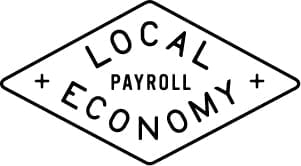If you run a small business as a sole proprietor or partnership, you might be considering electing to be taxed as an S Corporation. The major benefit to S Corp status can sometimes be a reduction in the self-employment tax you’re required to pay on your net income each year. A shareholder who contributes services to an S Corporation is required to be paid a reasonable salary that is subject to payroll taxes, and payroll taxes are basically self-employment tax. The possible savings occur because the income the S Corp earns above and beyond your salary will not be subject to self-employment tax. What constitutes a reasonable salary for an S Corp shareholder will be the subject of a future blog, but the IRS has laid out some guidelines that you will have to consider. You also must be organized as an LLC or corporation to elect S Corporation status.
Of course there is are downsides to an S Corp election. Among them are the added costs for preparing a tax return for the S Corp, fees for payroll processing, and increased emphasis on good bookkeeping records.
Tax Preparation Costs
If you are currently a sole proprietor you file your business taxes on Schedule C, which is attached to your 1040. There’s no need to file a separate tax return for the business. Your financial records can be as simple as tracking revenues, expenses, and fixed assets because balance sheet information is not required to be filed with Schedule C. An S Corp election will require you to file a separate tax return on Form 1120-S that includes balance sheet information as well as income and expenses. Consequently, costs for preparing an 1120-S tax return can be significantly higher than a personal tax return and these costs should be considered against your possible savings from reduced self-employment tax.
If you’re currently operating as a partnership, you are already filing a separate tax return for your business that includes balance sheet information. The increase in tax preparation costs shouldn’t be too significant.
Bookkeeping Costs
If you a sole proprietor and you currently use a software to keep track of your business’s financial records, then you are already tracking balance sheet transactions. However, if your financial records consist of a spreadsheet with manually entered revenues and expenses, you’re going to need to make improvements before electing S Corporation status. Those improvements could have associated costs that should be considered in relation to your savings on self-employment taxes related to electing S Corp status.
Payroll Processing Fees
Your election to be taxed as an S Corp means you will have to begin processing payroll if you don’t already have employees. If you don’t have experience with processing payroll you will definitely want to hire a reliable payroll service to take care of the tax filings for you, as penalties for late submission of taxes withheld from employee checks can be significant.
Conclusion
Electing to have your business taxed as an S Corp can save you a significant amount in taxes, but it’s not the best choice in all situations. Talk to a qualified tax professional and if you decide it is right for you and your business make sure your bookkeeping is in order and hire a payroll professional. Local Economy Payroll Services offers special rates to small employers with 5 employees or less that can help make your decision easier and save you even more money!
